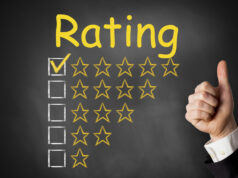A business needs always to consider how its brand comes across, both internally and externally. Here’s how to help keep it safe, protect its reputation, and create a caring culture.
In today’s hyper-connected world, a brand’s reputation is its most valuable asset. With the rise of social media and digital communication, a single misstep can cause widespread damage. Here are 26 proven strategies to safeguard and enhance your brand’s reputation.
1. Monitor Social Media Regularly
Keeping a close eye on what’s being said about your brand on social media allows you to respond quickly to negative comments or misconceptions. Social listening tools track mentions, keywords, and sentiment across platforms. Timely responses can prevent minor issues from escalating into full-blown crises.
2. Engage with Your Audience
Actively engaging with your audience shows that you care about their opinions. Responding to positive and negative feedback fosters trust and demonstrates that your brand values its customers. This interaction helps build a loyal community around your brand.
3. Be Transparent
Transparency builds trust. When issues arise, be upfront about what happened and your steps to resolve the situation. Hiding or minimising problems can lead to more significant damage when the truth inevitably comes out.
4. Create High-Quality Content
Content is a reflection of your brand. Consistently producing informative, engaging, and high-quality content helps establish your brand as a leader in your industry. This not only enhances your reputation but also attracts a loyal audience.
5. Manage Online Reviews
Online reviews significantly influence public perception. Encourage satisfied customers to leave positive reviews and promptly address any negative feedback. Responding to good and bad reviews shows that you value customer opinions and are committed to improving.
6. Implement Crisis Management Plans
A well-prepared crisis management plan is essential for protecting your brand during unexpected challenges. This plan should include clear communication strategies, designated spokespersons, and a step-by-step guide for addressing the crisis. Practising these plans regularly ensures your team is ready when needed.
7. Foster Corporate Social Responsibility (CSR)
Brands that actively contribute to societal good often enjoy a more substantial reputation. Engage in CSR initiatives that align with your brand’s values and involve your employees in these efforts. A positive social impact reflects well on your brand.
8. Maintain Consistent Branding
Consistency across all platforms and communications strengthens brand recognition and trust. Ensure your brand’s voice, messaging, and visuals are uniform in advertising, social media, or customer interactions. You have to create awareness of your product line. The additional challenge is to promote your company’s name and company brand as well.
9. Educate and Empower Employees
Your employees are brand ambassadors. Please train them regularly on brand values, customer service and crisis response. Empowered and knowledgeable employees contribute to a positive brand reputation through customer interactions.
10. Protect Your Intellectual Property
Your brand’s intellectual property, including trademarks and copyrights, is vital to maintaining your brand’s identity. Regularly monitor for unauthorised use of your brand’s assets and take legal action to protect your reputation and prevent brand dilution.
11. Invest in Quality Customer Service
Exceptional customer service can turn a negative experience into a positive one. Train your customer service team to handle complaints effectively and empathetically. Promptly resolving issues retains customers and enhances your brand’s image.
12. Be Proactive, Not Reactive
Don’t wait for a crisis to happen before addressing potential vulnerabilities. Regularly assess your brand’s reputation, identify potential risks, and take proactive steps to mitigate them. This approach reduces the likelihood of crises occurring.
13. Leverage Influencer Partnerships
Influencers can significantly impact your brand’s reputation. Partner with influencers who align with your brand values and have a positive reputation. Their endorsement can enhance your brand’s credibility and reach new audiences.
14. Maintain Strong Media Relations
Building and maintaining good relationships with the media can help manage your brand’s public perception. Ensure that your media communications are clear, accurate, and timely. Positive media coverage can reinforce your brand’s reputation.
15. Address Misinformation Promptly
Misinformation can spread quickly and damage your brand’s reputation. Monitor for false information and address it immediately with clear, factual responses. Educating your audience helps maintain trust and prevents the spread of rumours.
16. Encourage User-Generated Content
User-generated content (UGC) is a powerful tool for building trust. Encourage your customers to share their experiences with your brand online. Positive UGC serves as authentic testimonials, enhancing your brand’s reputation among potential customers.
17. Regularly Update Your Brand’s Digital Presence
Ensure that your website and social media profiles are always up-to-date with accurate information. A neglected digital presence can signal to customers that your brand is out of touch or unreliable, damaging your reputation.
18. Manage Third-Party Relationships Carefully
Your brand is often judged by the company it keeps. Ensure that your partners, suppliers, and affiliates uphold standards that align with your brand values. Any hostile actions by third parties can reflect poorly on your brand.
19. Seek Customer Feedback Continuously
Regularly ask for customer feedback through surveys, focus groups, or social media polls. Listening to your customers helps you address issues before they escalate and demonstrates that you value their input.
20. Continuously Evaluate and Improve
Reputation management is an ongoing process. Regularly evaluate your strategies and their effectiveness. Be open to change and improvement, ensuring your brand remains resilient and well-regarded in an ever-changing landscape.
Protecting your brand’s reputation requires vigilance, consistency, and a proactive approach. By implementing these strategies, you can safeguard your brand from potential threats and maintain a positive, lasting impression on your audience.
21. Apologise With Authenticity During A Crisis
Bad things will happen to businesses at some point in their lives, on all scales and intensities. What you need to consider is how you deal with the situation. You should be prepared to deal with customers both during and after a crisis and be prepared to apologise to them effectively. This way, you may be able to salvage their trust and help keep your brand intact.
22. Look After Your Employees
It should go without saying that one of the most important aspects of your brand image is how your employees are treated. Employees entering your business may only come in if they have a positive recommendation. And highly skilled employees within your organisation may leave if they are dissatisfied with their company’s direction.
Looking after your employees not only helps protect your brand’s reputation but also leads to increased production. It’s no secret that happier employees are more productive, which means they increase their efficiency.
There are many different ways to look after your employees, from communicating with them to resolve any issues to supporting them in times of need. One way a brand can damage its reputation is by making hard-working employees redundant.
The good news is that there are ways to combat this problem. Outplacement services are for when outgoing employees leave due to issues such as downsizing or loss of general income. They will work with your employees to help them land a new job as soon as possible.
This is an excellent service to utilise, as it helps ensure that employees don’t leave disgruntled and are more positive when talking about your business. This will also be reflected in the general public eye, where your business will come across as caring and thoughtful. You can get outplacement assistance from companies that can explain everything and work with you to find solutions that work for everyone.
23. Perks And Benefits For Employees
As we briefly mentioned, a brand’s reputation can be made by how it treats its employees, and perks and benefits are a great way to attract them. Often, people will decide where they wish to work and apply based on what additional skills or experience they can bring to the table.
Such perks could include quarterly work parties, paid holiday trips, private healthcare insurance, or just monetary bonuses. Whatever it is, you should consider speaking to your employees to find out what they would like and how feasible it would be to implement it.
24. Align Your Brand Morals With Your Legal Obligations
As a business, you have a moral and legal responsibility to look after your employees. You can help achieve this by maintaining a positive reputation, following guidelines, and going above and beyond where possible.
Consider looking into the laws and guidelines regarding workplace health and safety, as you may be surprised to learn what you’re responsible for. For example, you must be able to provide an acceptable amount of lighting with natural tones to keep your employees’ well-being in top condition.
With the world becoming more digital and cyber, you need to consider how best to protect your employees online. If you manage to leak their data in any way, either accidentally or through a data breach, then you could be dealing with serious consequences—both for the whole business and at an individual level.
25. Keep Promises
Promises are sacred in life. Many people swear by their word and will never trust anyone again if they break it. It’s no different in the business world. If your business makes a promise to your clients and you cannot keep it, your brand’s reputation will suffer greatly.
This is one of the best ways to help build your brand’s trust and reliability. Only tell customers something you are sure you can stick to. For example, if you’re offering free shipping, you must stick to it, with no exceptions unless clearly stated.
26. Support Your Local Community
Many new and well-established businesses will do well to remember their roots and current location. Supporting the local area and community, both directly and indirectly, is one of the best ways to gain the trust of the local community and establish your brand’s credibility.








